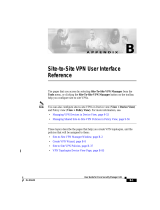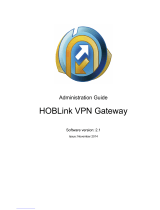
Set Up Basic Wireless Networks ...................................................................................................................................................... 76
Advanced Settings .................................................................................................................................................................................. 82
WLAN Schedule ........................................................................................................................................................................................ 84
802.11 Rate Control ................................................................................................................................................................................ 84
MAC Filter ..................................................................................................................................................................................................... 85
Network Security ................................................................................................................................................................. 87
ACL ................................................................................................................................................................................................................... 87
URL Filtering ................................................................................................................................................................................................. 95
Attack Defense .......................................................................................................................................................................................... 98
Transmission .......................................................................................................................................................................103
Routing ........................................................................................................................................................................................................ 103
NAT ................................................................................................................................................................................................................ 106
Session Limit ............................................................................................................................................................................................ 109
Bandwidth Control ................................................................................................................................................................................ 110
Configure VPN ....................................................................................................................................................................114
Create Profiles ....................................................................................................................................................................141
Time Range ............................................................................................................................................................................................... 141
Groups ......................................................................................................................................................................................................... 143
Authentication .....................................................................................................................................................................147
Portal ............................................................................................................................................................................................................. 147
802.1X .......................................................................................................................................................................................................... 178
MAC-Based Authentication ............................................................................................................................................................. 181
RADIUS Profile ......................................................................................................................................................................................... 182
Services .................................................................................................................................................................................185
Dynamic DNS ........................................................................................................................................................................................... 185
SNMP ............................................................................................................................................................................................................ 187
UPnP ............................................................................................................................................................................................................. 188
SSH ................................................................................................................................................................................................................ 189
Reboot Schedule ................................................................................................................................................................................... 189
PoE Schedule .......................................................................................................................................................................................... 190
Export Data ............................................................................................................................................................................................... 191
Configure the Omada SDN Controller
Manage the Controller .....................................................................................................................................................194
General Settings..................................................................................................................................................................................... 194
Mail Server ................................................................................................................................................................................................. 195
History Data Retention ....................................................................................................................................................................... 197
Customer Experience Improvement Program ...................................................................................................................... 197





















